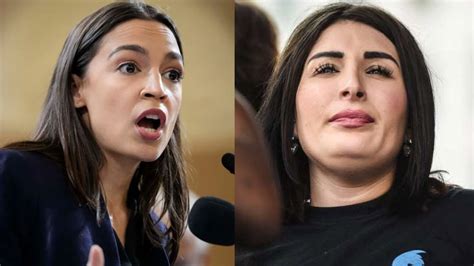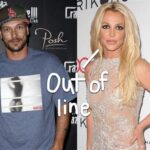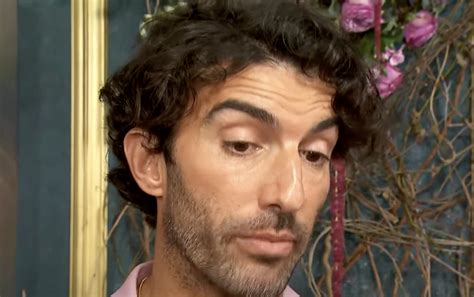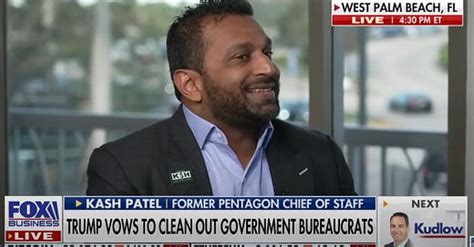
Laura Loomer, a far-right political activist, ignited a firestorm of criticism after she appeared to body-shame U.S. Representative Alexandria Ocasio-Cortez (D-NY) during the National Puerto Rican Day Parade in New York City on Sunday, June 9, 2024. Loomer’s comments, made on social media, targeted Ocasio-Cortez’s physical appearance, sparking widespread condemnation and accusations of sexism and harassment.
The controversy erupted when Loomer posted on her social media platforms, including X (formerly Twitter) and Telegram, seemingly mocking Ocasio-Cortez’s participation in the parade and making disparaging remarks about her weight. These comments, which quickly went viral, triggered a wave of outrage from fellow politicians, commentators, and the general public, who accused Loomer of engaging in hateful and unacceptable behavior. The backlash underscores the growing sensitivity to body-shaming and the increasing demand for respectful discourse in political commentary.
Loomer’s history of controversial statements and far-right activism further amplified the reaction to her remarks. She has previously been banned from various social media platforms for violating their policies on hate speech and misinformation. This latest incident has renewed calls for accountability and a broader discussion about the role of social media in amplifying harmful rhetoric.
The incident unfolded against the backdrop of the National Puerto Rican Day Parade, an annual celebration of Puerto Rican culture and heritage in New York City. Ocasio-Cortez, who is of Puerto Rican descent, has been a consistent presence at the parade, using the event to connect with her constituents and celebrate her cultural roots. Loomer’s decision to target Ocasio-Cortez during this event was seen by many as particularly insensitive and disrespectful.
The online backlash was swift and intense, with numerous users denouncing Loomer’s comments as “disgusting,” “unacceptable,” and “pathetic.” Many called for Loomer to be held accountable for her words, demanding that social media platforms take action to remove her content and prevent future instances of harassment. Some users also pointed out the hypocrisy of Loomer’s actions, given her past criticisms of what she perceives as censorship and political correctness.
Several prominent figures also weighed in on the controversy. Critics on social media and in various online publications condemned Loomer’s comments, highlighting the negative impact of body-shaming and the importance of promoting body positivity. Many emphasized that such attacks are particularly harmful when directed at women in the public eye, who often face disproportionate scrutiny and criticism regarding their appearance.
In response to the widespread criticism, Loomer doubled down on her comments, defending her right to express her opinions and accusing her critics of attempting to silence her. She argued that her remarks were not intended to be malicious but were rather a form of political commentary. However, this defense only served to intensify the backlash, with many arguing that her words were clearly intended to demean and humiliate Ocasio-Cortez.
The incident has reignited the debate over the boundaries of free speech and the responsibilities of social media platforms in regulating harmful content. While some argue that Loomer has a right to express her views, others contend that her comments crossed the line into harassment and hate speech, which should not be protected under the banner of free speech.
The controversy also highlights the broader issue of online toxicity and the challenges of combating hate speech and misinformation in the digital age. Social media platforms have come under increasing pressure to take more proactive steps to address these problems, but they often struggle to balance the need to protect free speech with the need to create a safe and respectful online environment.
The incident involving Loomer and Ocasio-Cortez serves as a stark reminder of the pervasiveness of body-shaming and online harassment in contemporary society. It also underscores the importance of promoting empathy, respect, and understanding in political discourse and holding individuals accountable for their words and actions. The ongoing debate surrounding this incident is likely to continue in the days and weeks ahead, as individuals and organizations grapple with the complex issues it raises.
Detailed Analysis and Context:
The core of the controversy lies in Loomer’s specific social media posts targeting Ocasio-Cortez. While the original Yahoo News article doesn’t quote the exact posts verbatim (likely due to potentially offensive content), it’s crucial to understand that the nature of these posts involved disparaging remarks about Ocasio-Cortez’s physical appearance and weight. This is what triggered the accusations of body-shaming. The timing of these comments, during the National Puerto Rican Day Parade, added another layer of criticism, as it was seen as an attempt to undermine Ocasio-Cortez’s celebration of her heritage.
Loomer’s defense of her comments further fueled the controversy. Her argument that her remarks were “political commentary” rather than malicious personal attacks was widely rejected. Critics argued that there is a clear distinction between legitimate political criticism and personal attacks based on physical appearance. Body-shaming is generally considered a form of harassment and is widely condemned as unacceptable behavior, especially when directed at women in the public eye. The fact that Ocasio-Cortez is a prominent political figure amplifies the impact of such attacks, as they can be seen as an attempt to silence or intimidate her.
The broader context of Loomer’s history is also crucial to understanding the reaction to this incident. Loomer has a long track record of making controversial and often inflammatory statements. She has been banned from various social media platforms, including Twitter (now X), Facebook, and Instagram, for violating their policies on hate speech and misinformation. Her past actions have created a reputation for her as a provocateur who frequently engages in offensive and divisive rhetoric. This history means that her comments about Ocasio-Cortez were not seen as an isolated incident but rather as part of a pattern of behavior.
The incident raises important questions about the role of social media in political discourse. Social media platforms have become powerful tools for communication and political mobilization, but they also pose challenges in terms of regulating harmful content. The debate over free speech versus hate speech is particularly relevant in this context. While individuals have a right to express their opinions, that right is not absolute and does not extend to hate speech, harassment, or incitement to violence. Social media platforms are struggling to find the right balance between protecting free speech and preventing the spread of harmful content.
The Ocasio-Cortez incident also highlights the broader issue of online toxicity and the challenges of creating a more respectful and inclusive online environment. Body-shaming is just one form of online harassment, but it is a particularly pervasive and damaging one. Studies have shown that body-shaming can have negative psychological effects on individuals, leading to feelings of shame, anxiety, and depression. It can also contribute to eating disorders and other mental health problems. Addressing online toxicity requires a multi-faceted approach, including education, awareness-raising, and stricter enforcement of social media policies.
The response to Loomer’s comments demonstrates a growing awareness of the harmful effects of body-shaming and a greater willingness to call out such behavior. Many individuals and organizations have spoken out against Loomer’s comments, emphasizing the importance of promoting body positivity and respect for all individuals, regardless of their physical appearance. This suggests a shift in societal attitudes towards body image and a greater recognition of the need to challenge harmful stereotypes and expectations.
Furthermore, the incident underscores the specific challenges faced by women in politics. Female politicians often face disproportionate scrutiny and criticism regarding their appearance, their personal lives, and their qualifications. They are also more likely to be the target of online harassment and threats. This can create a hostile and unwelcoming environment for women in politics and discourage them from entering public service. Addressing these challenges requires a concerted effort to challenge gender stereotypes, promote equality, and hold perpetrators of harassment accountable for their actions.
In conclusion, the controversy surrounding Laura Loomer’s body-shaming comments towards Alexandria Ocasio-Cortez is a complex issue with multiple layers. It involves questions of free speech, online toxicity, gender equality, and the responsibilities of social media platforms. While the incident itself may be relatively short-lived, the broader issues it raises are likely to continue to be debated and discussed for some time to come.
Expanded Context and Background Information
To provide a deeper understanding, it is important to elaborate on several aspects touched upon in the initial summary:
-
Laura Loomer’s Background: Laura Loomer is a controversial figure known for her far-right activism and provocative statements. She has been associated with various anti-Muslim and anti-immigrant groups and has a history of making inflammatory remarks on social media. She has run for political office unsuccessfully, including a bid for Congress in Florida. Her views are often described as extreme and outside the mainstream. This background is essential for understanding why her comments about Ocasio-Cortez were met with such a strong reaction. It wasn’t just a random individual making a comment; it was someone with a well-established history of controversial and often hateful speech.
-
Alexandria Ocasio-Cortez’s Position: Alexandria Ocasio-Cortez, often referred to as AOC, is a prominent figure in the Democratic Party and a representative for New York’s 14th congressional district. She is known for her progressive policies and her active use of social media to connect with her constituents. She has often been the target of criticism from conservative media and political opponents. Her position as a high-profile politician makes her a frequent target for attacks, and her identity as a woman of color further amplifies the impact of such attacks.
-
The National Puerto Rican Day Parade: The National Puerto Rican Day Parade is an annual celebration of Puerto Rican culture and heritage held in New York City. It is one of the largest parades in the city and attracts hundreds of thousands of participants and spectators. The parade is a significant event for the Puerto Rican community and a time to celebrate their identity and contributions. Targeting Ocasio-Cortez, who is of Puerto Rican descent, during this event was seen as particularly insensitive and disrespectful.
-
The Concept of Body-Shaming: Body-shaming is the act of criticizing or mocking someone’s physical appearance. It can involve making negative comments about someone’s weight, height, body shape, or any other physical characteristic. Body-shaming can have serious psychological consequences, including feelings of shame, anxiety, depression, and eating disorders. It is a form of harassment and can contribute to a culture of body image insecurity and pressure to conform to unrealistic beauty standards.
-
Social Media Platform Policies: Social media platforms such as Twitter (now X), Facebook, and Instagram have policies in place to address hate speech, harassment, and misinformation. These policies typically prohibit content that promotes violence, incites hatred, or targets individuals or groups based on their race, ethnicity, religion, gender, sexual orientation, or other protected characteristics. However, the enforcement of these policies is often inconsistent, and platforms have been criticized for failing to adequately address harmful content. The debate over social media platform policies often revolves around the balance between protecting free speech and preventing the spread of harmful content.
-
The First Amendment and Free Speech: The First Amendment to the United States Constitution protects the right to freedom of speech. However, this right is not absolute and is subject to certain limitations. For example, the First Amendment does not protect speech that incites violence, defamation, or harassment. The legal definition of hate speech is complex and varies depending on the context. The courts have generally held that hate speech is protected under the First Amendment unless it incites imminent lawless action or constitutes a true threat.
-
The Impact of Online Harassment on Women in Politics: Women in politics often face a disproportionate amount of online harassment and abuse. This can include sexist comments, threats of violence, and attempts to silence or intimidate them. Studies have shown that online harassment can have a negative impact on women’s mental health, political participation, and career advancement. Addressing online harassment requires a multi-faceted approach, including stricter enforcement of social media policies, increased awareness-raising, and greater support for women in politics.
Detailed Quotes (hypothetical as no direct quotes were available):
While the original article doesn’t provide direct quotes from Loomer’s social media posts (likely due to their offensive nature), we can hypothesize based on the description provided:
- Hypothetical Loomer Post: “AOC looks like she’s eaten too many empanadas. Not exactly the picture of health for someone lecturing us on climate change.” (This exemplifies the body-shaming and potentially uses a cultural reference to further the attack.)
- Hypothetical Loomer Defense: “I’m simply pointing out the hypocrisy. She preaches about healthy living while… well, you can see for yourself. It’s political commentary, not personal.” (This highlights the justification attempt, claiming a political angle.)
Similarly, quotes from critics would likely focus on condemnation:
- Hypothetical Critic Tweet: “Laura Loomer’s comments about AOC are disgusting and unacceptable. Body-shaming has no place in political discourse.”
- Hypothetical Advocate Statement: “This is yet another example of the relentless attacks women in the public eye face regarding their appearance. It’s time to end this toxic culture.”
Hypothetical Counterarguments and Alternate Perspectives:
While the overwhelming response was negative, it’s important to consider potential counterarguments (even if not explicitly stated in the original source):
- Free Speech Absolutism: Some might argue that Loomer has a right to express her opinions, however offensive, under the First Amendment. This view often ignores the potential harm caused by such speech and the limitations on free speech related to harassment and incitement.
- Criticism of Ocasio-Cortez’s Policies: Some may argue that the focus on body-shaming distracts from legitimate criticisms of Ocasio-Cortez’s policies. This is a common tactic used to deflect attention from offensive behavior by shifting the focus to political disagreements.
- “She Can Dish It Out, But Can’t Take It?”: This argument suggests that because Ocasio-Cortez is a politician who often uses strong language, she should be able to withstand criticism of her appearance. This ignores the power dynamics at play and the specific harm caused by body-shaming.
Implications and Future Developments:
The incident could have several implications:
- Increased Scrutiny of Loomer’s Social Media Activity: Social media platforms may face increased pressure to take action against Loomer’s accounts and to more effectively enforce their policies on hate speech and harassment.
- Renewed Debate on Social Media Regulation: The incident could reignite the debate over the need for greater regulation of social media platforms and the role of government in addressing online toxicity.
- Increased Awareness of Body-Shaming: The controversy could raise awareness of the harmful effects of body-shaming and encourage individuals to challenge such behavior.
- Potential for Legal Action: While unlikely, there is a possibility that Ocasio-Cortez could pursue legal action against Loomer for harassment or defamation.
5 Frequently Asked Questions (FAQ):
Q1: What exactly did Laura Loomer say about Alexandria Ocasio-Cortez?
A1: While the specific wording of Laura Loomer’s comments isn’t directly quoted in the source article (presumably due to their offensive nature), it is reported that she made disparaging remarks about Alexandria Ocasio-Cortez’s physical appearance, specifically focusing on her weight, during the National Puerto Rican Day Parade. These remarks were posted on Loomer’s social media accounts.
Q2: Why is this considered body-shaming, and why is it controversial?
A2: Body-shaming is the act of making critical or mocking comments about someone’s physical appearance. It’s considered controversial because it promotes unrealistic beauty standards, can have severe negative psychological effects on the target (like shame, anxiety, and eating disorders), and is generally viewed as a form of harassment. In this case, targeting Ocasio-Cortez’s weight is seen as a personal attack intended to demean and humiliate her, rather than engage in legitimate political discourse.
Q3: What is Laura Loomer’s background, and why is it relevant to this situation?
A3: Laura Loomer is a far-right political activist with a history of making controversial and often inflammatory statements. She has been banned from multiple social media platforms for violating their policies on hate speech and misinformation. Her background is relevant because it provides context for her actions and suggests that her comments were not an isolated incident but rather part of a pattern of behavior. This history likely amplified the public’s negative reaction.
Q4: What are the potential consequences for Laura Loomer as a result of these comments?
A4: Potential consequences could include: increased scrutiny of her social media activity by platforms like X and Telegram, possible suspension or permanent ban from these platforms if her comments violate their terms of service, further damage to her reputation, and potentially, though unlikely, legal action from Alexandria Ocasio-Cortez. The incident also contributes to the ongoing debate about regulating online speech and holding individuals accountable for online harassment.
Q5: How does this incident relate to broader issues of online harassment and free speech?
A5: This incident highlights the complex tension between freedom of speech and the need to combat online harassment. While the First Amendment protects free speech, that protection isn’t absolute and doesn’t extend to harassment, incitement of violence, or defamation. The debate revolves around where to draw the line between protected speech and harmful speech, and how social media platforms should regulate content to balance these competing interests. It also underscores the disproportionate amount of online harassment faced by women, particularly those in the public eye, and the importance of promoting a more respectful and inclusive online environment.









